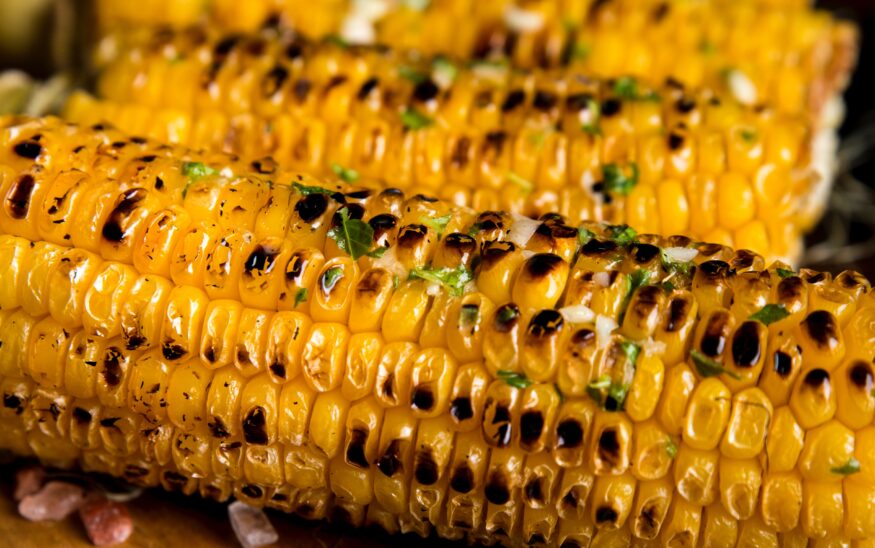Organic Comes to Olathe Sweet Sweet Corn
Organic corn fetches a 70 percent premium because it's more labor-intensive
Allen Best //February 15, 2018//


Organic Comes to Olathe Sweet Sweet Corn
Organic corn fetches a 70 percent premium because it's more labor-intensive
Allen Best //February 15, 2018//

In 1987, when John Harold obtained the trademark for “Olathe sweet sweet corn,” he and other growers packed 12,586 boxes, 48 ears to a box. In 2017, they packed 720,000 boxes.
That’s not the only change. You can now buy organic Olathe sweet sweet corn. “I have a son who was a professional student who came home and wanted to do that,” Harold says of his son, David. The operation now includes about 100 acres of organic crops, including squash, sunflowers, hops, tomatoes, garlic and 25 acres of organic corn.
“It’s coming,” Harold says of organic corn, “but it’s terribly labor intensive.”
Olathe sweet sweet corn — sold widely in King Soopers and City Market grocery stores each summer — is grown near the town of that name, between Delta and Montrose. Several farmers work with Harold in delivering the corn. He cites two keys to his branded product: hot days and coolish nights. Even a cloudy day can diminish the sugar content, he says.
Ears must be hand-picked because of their tenderness and placed into a container that is not exposed.
“This variety of corn will not stand up to mechanical picking,” Harold says. “Somebody with a mechanical picking operation will probably dispute that, but I’m giving you my opinion, which I think is an educated opinion after 31 years.”
Labor is crucial.
The picking in 2017 was done by 149 workers imported from Mexico under the H-2A program for seasonal agricultural work. Kay pays $11 an hour. Housing, transportation and other costs boost his expense to $15 an hour. Local workers tend to be unwilling to commit to finishing out the season. “A perishable crop cannot rely on workers who work whenever they want to,” he says.
Organic corn fetches a 70 percent premium, he says, but is vastly more labor-intensive.
























